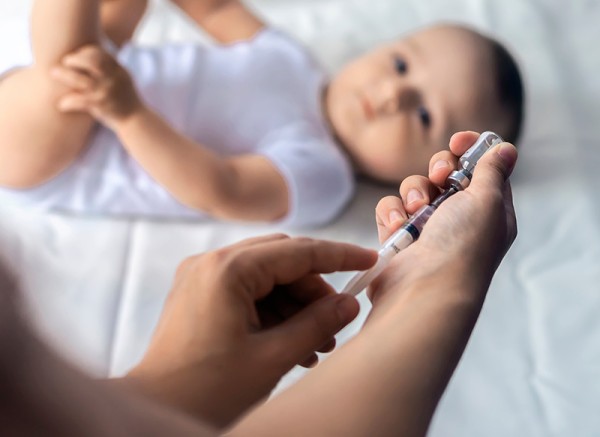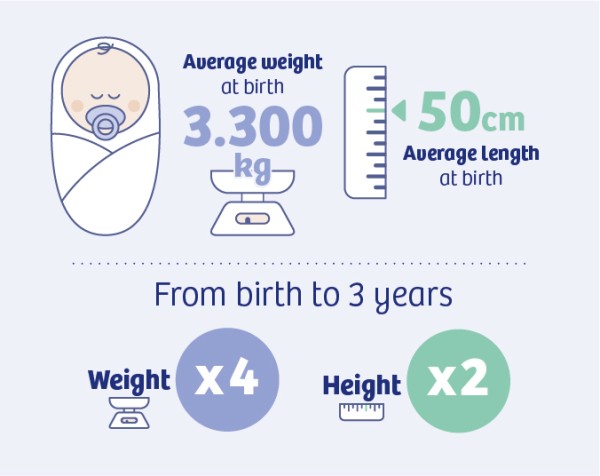
In your daily life
Your baby’s health
All childhood illnesses should be taken seriously. What may start out as a common complaint can become serious if you do not take care of it.
All signs of illness should be monitored, whether it’s a fever, frequent crying without an obvious reason, wincing in pain, red patches on the skin, oozing, abnormal stool, sudden behavioural changes, or weight loss.
Immediately call a doctor for an examination: it is better to disturb him rather than take the risk of more serious problems down the line.
Avoid giving your child medicine without checking with your doctor first.
Your baby is teething
Your baby is grumpy, cries a lot, wakes up at night, is generally restless…
When you look into her mouth, her gums are red and painful.
This is all normal when a tooth is coming through.

Baby’s first tooth will come in at very different ages, on average when she is around 6 months old. Some babies will only start teething when they are 8 months old, or even later.
Generally, the front teeth will come in first, followed by the other baby teeth until the jaw has filled in. Around 5 or 6 years of age, they will fall out, making space for adult teeth.
To soothe teething pain, give your baby something to chew on, like a special teething ring. You can also try rubbing her gums with some soothing homeopathic gel.
Wash teething toys thoroughly and put them in the fridge before giving one to her, as cold reduces pain.
Vaccinating your baby
Your paediatrician will tell you which vaccines are required, and when.
Vaccinations protect babies against many diseases.

Some injections are mandatory in France. This is the case for diphtheria, tetanus, and polio. Others are simply recommended: MMR (Measles, Mumps, Rubella), whooping cough, haemophilus influenza, meningitis. Serious, and even deadly diseases have been nearly eradicated thanks to large-scale routine vaccination. But we must remain alert, and vaccination must continue to protect new generations of children.
Reassuring your baby
These doctor’s visits can be stressful for your child. Reassure her by explaining what is going to happen and by telling her that you are there for her. Don’t forget to bring her favourite soft toy! You can also try applying a special cream of skin patch to reduce injection pain. Healthcare professionals will answer any question you may have.
How is my baby growing?
Growth charts help you follow the evolution of their weight and height as they grow.
Your baby’s growth
During the first years of life, your child grows very fast. Growth charts will let you follow the evolution of your baby’s weight and height as she grows and help your doctor monitor her health.

Good to know: If your baby was bigger and heavier at birth, it is normal for that trend to continue. The reverse is true as well. Your doctor will confirm this when she checks her growth chart: the most important thing is for your baby’s growth to stay between the two curves.
Your baby will lose a few grams right after birth. Once her weight has stabilised, she will gain on average:
- between the ages of 0 and 3 months: +30 to 25 g a day
- between the ages of 3 and 6 months: +25 to 20 g a day
- between the ages of 6 and 9 months: +20 to 15 g a day
- between the ages of 9 and 12 months: +15 to 10 g a day